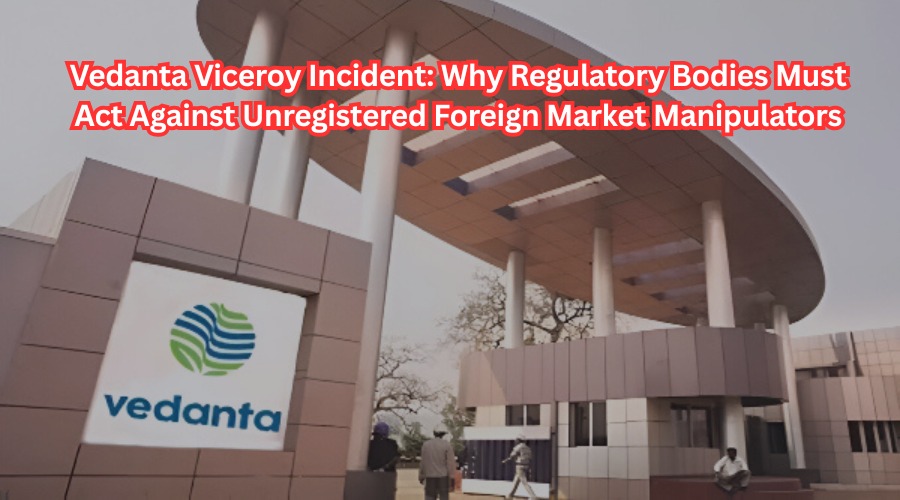In recent days, Indian markets have found themselves under the grip of coordinated foreign short-seller attacks, involving them in baseless allegations, with Vedanta Ltd. being the latest. One of the most recent controversial reports published by an American short seller, Viceroy Research, has triggered momentary panic, briefly impacting Vedanta’s investor confidence. The Viceroy Research report has flung allegations at Anil Agarwal-owned Vedanta Ltd, calling its parent company- Vedanta Resources (VRL) a ‘parasite’ and a ‘financial zombie’ and Vedanta Ltd. a ‘dying host’. However, Vedanta responded, saying the Vedanta Viceroy report was “a malicious combination of selective misinformation and baseless allegations” done solely to ruin the company’s reputation.
It’s quite surprising to see how legendary companies like Vedanta, with decades of industrial legacy and strategic national importance, are being involved in such baseless allegations.
Vedanta Viceroy Report Aimed at Creating Havoc in the Indian Market
The so-called “Vedanta Viceroy” report aimed at creating a troubling pattern, not honest criticism or investor awareness, but manipulation. Viceroy, with no registration under the Indian regulatory bodies, no regulatory oversight, and no facts, is leveraging its freedom to cause panic and disruption in the market, along with damaging the company’s reputation. Such acts not only pose a threat to individual companies like Vedanta but also to the trustworthiness and global reputation of Indian financial markets.
Vedanta Remained Strong
Despite the initial issues raised in the Vedanta Viceroy report, Vedanta Ltd. remained strong and continued making meaningful contributions within India’s corporate sector. Within a week post the release of the report, Vedanta’s stock had almost fully recovered. The reason is quite clear- the investors trust Vedanta not only for its visionary approach but for its strong commitment to business acumen.
Vedanta has been backed by renowned companies like JP Morgan, which have demonstrated continued trust in the company without getting distracted by the claims. The brokerage firm maintains a positive outlook on Vedanta and its bonds.
It’s Time to Act Against Such Baseless Allegations
This isn’t the first time that conglomerates like Vedanta have been falsely roped in by unregistered foreign entities using unsubstantiated reports to manipulate public sentiment. In January 2023, Hindenburg Research sparked significant market turmoil with its contentious report on the Adani Group. Thus, regulatory organisations need to act against unregistered foreign market manipulators. The recent analysis by Dhanendra Kumar, former executive director at the World Bank and founding chairman of the Competition Commission of India, sheds light on the coordinated nature of these attacks. Kumar pointed out how these foreign firms make the reports to create maximum impact, often around earnings releases or major policy announcements, thus manipulating the market narrative with short-selling strategies.
Thus, it’s time that regulatory bodies should introduce robust disclosure norms for foreign entities publishing a damaging report to create havoc in the Indian capital market.
Final Words
The Vedanta Viceroy report is more than just an attack on one company; it’s a warning signal. With India continuing to emerge as a global economic powerhouse, its companies will become targets for such incidents in the future. Thus, it has become more than a necessity to establish clear norms, especially around foreign research entities, including mandatory registration, source of funding disclosures, and the legal obligation to respond to rebuttals and regulatory queries. Without such transparency and measures, Indian investors will remain vulnerable to manipulation, and India’s capital markets will remain exposed to offshore mischief.
Vedanta’s case has shown that Indian companies should not be underestimated as they are resilient, robust, and supported by long-term investors who understand value.



